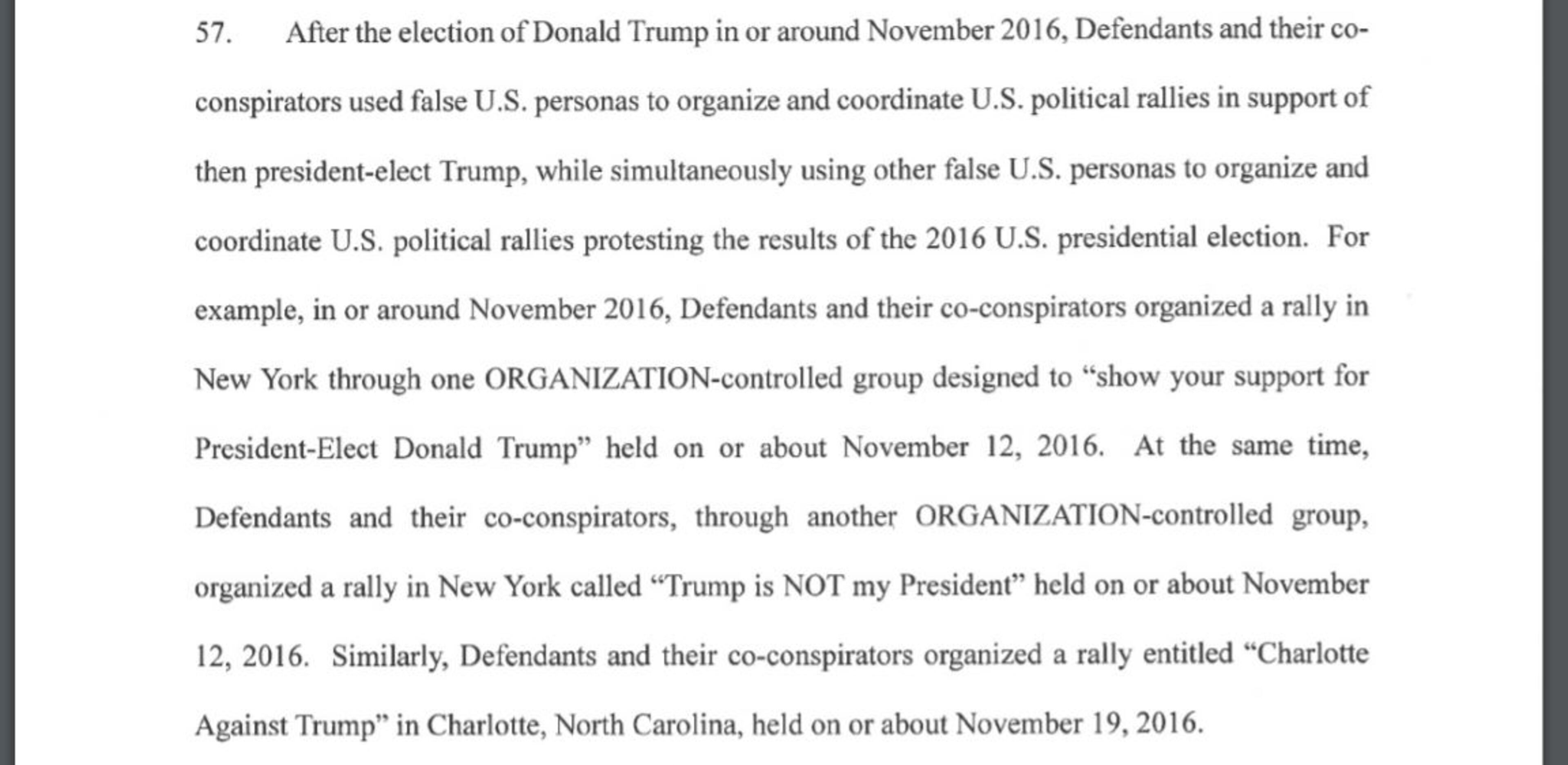Mueller investigation charges 13 Russians in investigation over 2016 election interference
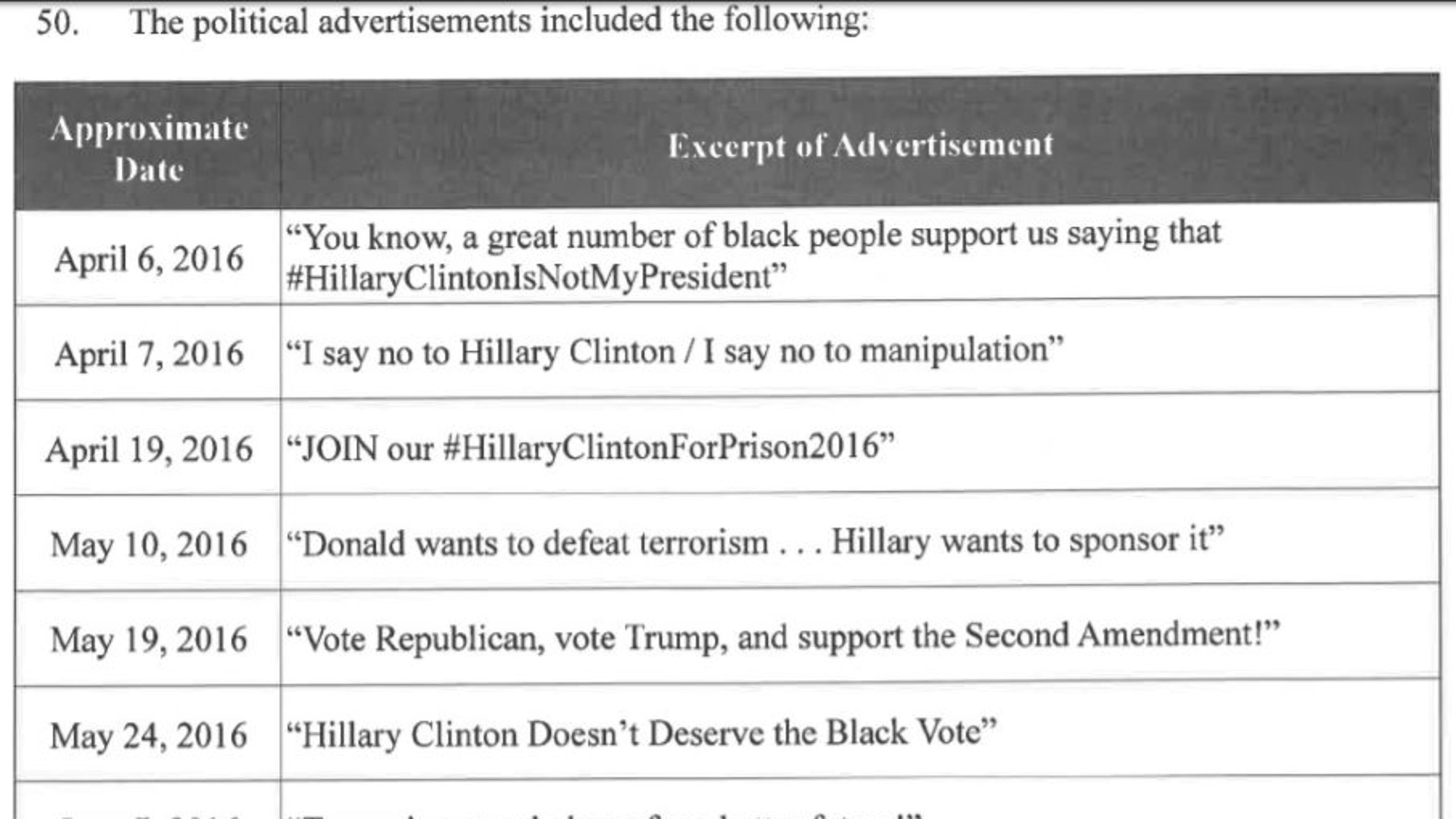
The office of Special Counsel Robert Mueller announced Friday that thirteen Russian nationals and three Russian groups had been charged with violating U.S. criminal laws for interfering with the 2016 election, detailing a string of efforts to help President Donald Trump's campaign, and sew doubt about Democratic nominee Hillary Clinton, but not showing any evidence of coordination or collusion with the Trump Campaign.
"The indictment charges 13 Russian nationals and three Russian companies for committing federal crimes, while seeking to interfere in the United States political system, including the 2016 Presidential election," said Deputy Attorney General Rod Rosenstein.
"The defendants posed as politically and socially active Americans, advocating for and against particular candidates," Rosenstein said. "They established social media pages and groups to communicate with unwitting Americans."
The indictment, focused mainly on the Russian group known as the 'Internet Research Agency,' was returned by a federal grand jury in Washington, D.C. earlier today, charged that the group first went after multiple candidates for President, and then fine tuned their message.
"Defendants' operation included supporting the presidential campaign of then-candidate Donald J. Trump ("Trump Campaign") and disparaging Hillary Clinton."
At one point, the indictment alleges that Russians posing as Americans, communicated directly with Trump Campaign staff officials about organizing efforts in Florida.
There was no evidence presented in the indictment that campaign officials knew they were getting help from a Russian group.
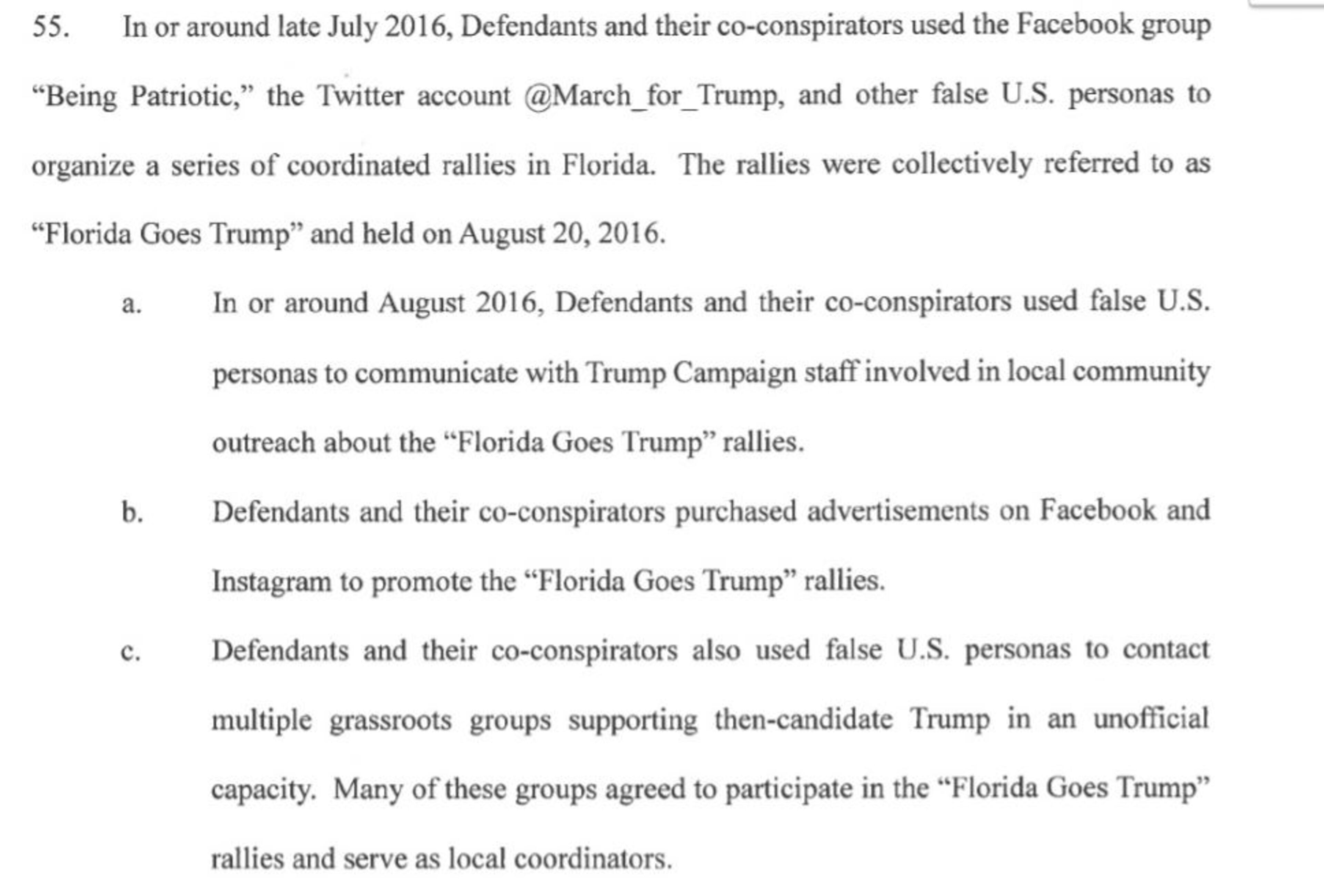
"The conspiracy had as its object impairing, obstructing, and defeating the lawful governmental functions of the United States by dishonest means in order to enable the Defendants to interfere with U.S. political and electoral processes, including the 2016 U.S. presidential election," the indictment states.
The indictment charges that Russian efforts to meddle in the 2016 election began at least by 2014, as they tracked and studied social media sites "dedicated to U.S. politics and social issues."
Not all of this work was done from the safety of Russia over the internet, as the feds say some of the 13 Russians named in this indictment actually traveled to the U.S. "in order to collect intelligence for their interference operations."
The feds charged that the Russian groups set out to use social media sites to stir activity in a wide variety of areas, focusing on immigration, the Black Lives Matters controversy, religion, and more.
"By 2016," the indictment stated, "the size of many ORGANIZATION-controlled groups had grown to hundreds of thousands of online followers."
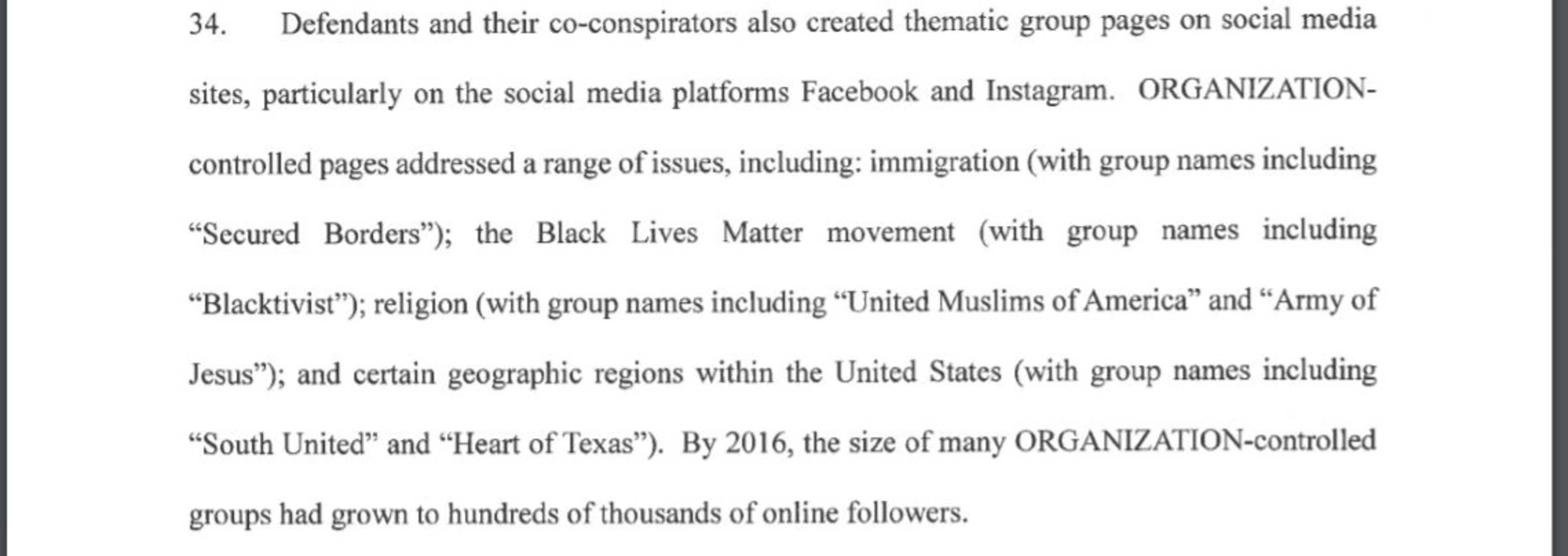
The feds charge that the groups started out by criticizing candidates like Hillary Clinton, Ted Cruz, and Marco Rubio, but by fall were engaged mainly in helping Trump, and trying to undermine Clinton.
But there were also multiple social media accounts focusing on certain groups and issues - like "Woke Blacks," "Blacktivist," "United Muslims of America," with some of those pressing claims against Hillary Clinton.
"Hillary Clinton had already committed voter fraud during the Democrat Iowa Caucus," one Facebook post read from August read.

Right before election day, the Twitter hashtag "#VoterFraud" was used to accuse Democrats of "tens of thousands of ineligible mail in Hillary votes" in Broward County, Florida.
But it wasn't all tweets and Facebook posts, as the indictment says the Russian groups paid for political advertisements on social media.
The ads mainly targeted Democrats - "Hillary Clinton Doesn't Deserve the Black Vote" - and praised Republicans - "Trump is our only hope for a better future."
This was a list of social media ads in the indictment handed down on Friday afternoon.
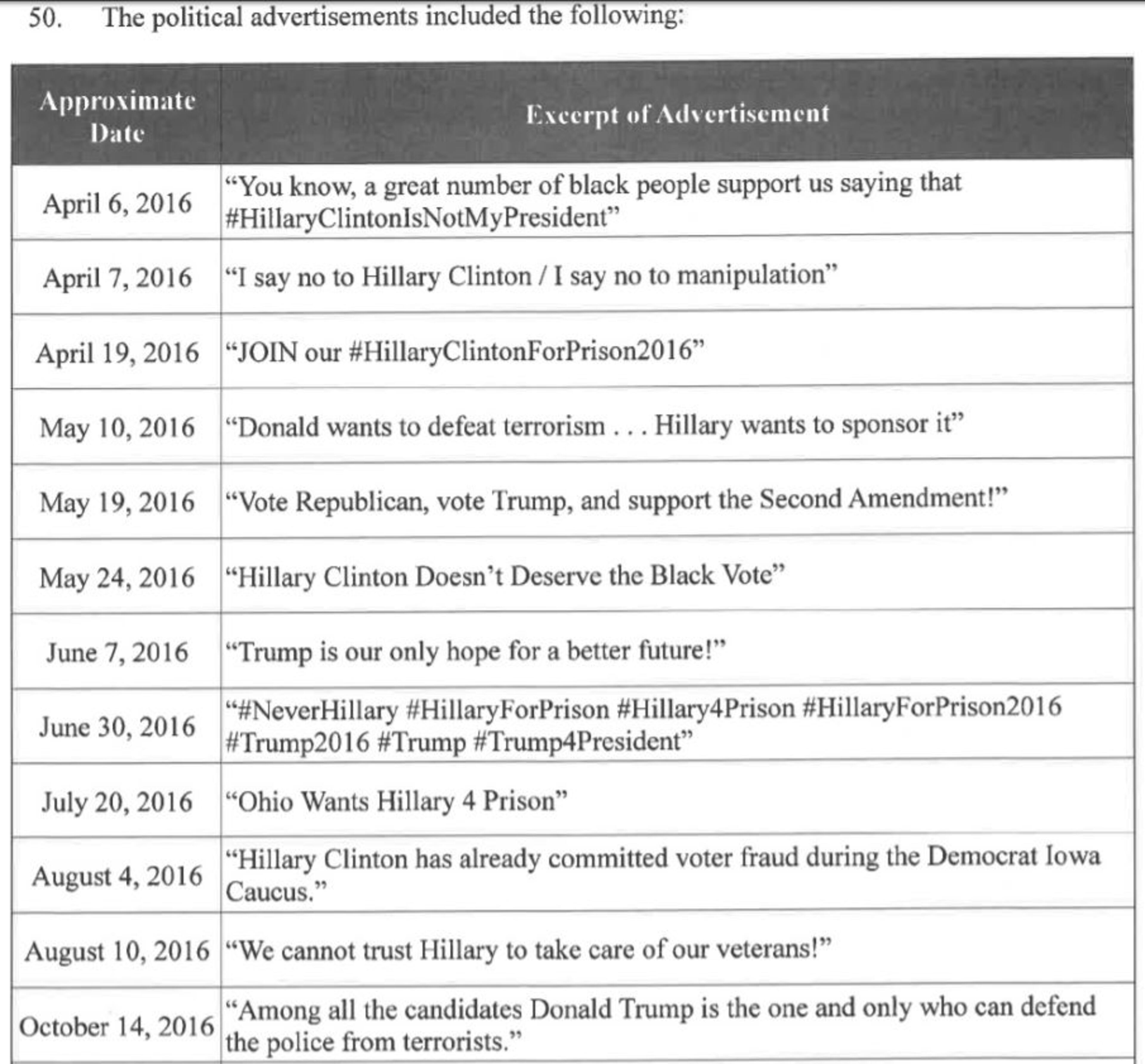
At a Justice Department news conference, the Deputy Attorney General repeatedly said that despite all of the information showing interference by the Russians indicted today, there was no evidence to show it had swayed the 2016 election.
"There is no allegation in this indictment that any American was a knowing participant in this illegal activity," Rosenstein told reporters. "There is no allegation in the indictment that the charge conduct altered the outcome of the 2016 election.”
In the highly detailed 37 page indictment, the Special Counsel's office described a series of efforts to organize rallies to help the Trump Campaign, both before - and after - the November 2016 election as well.
